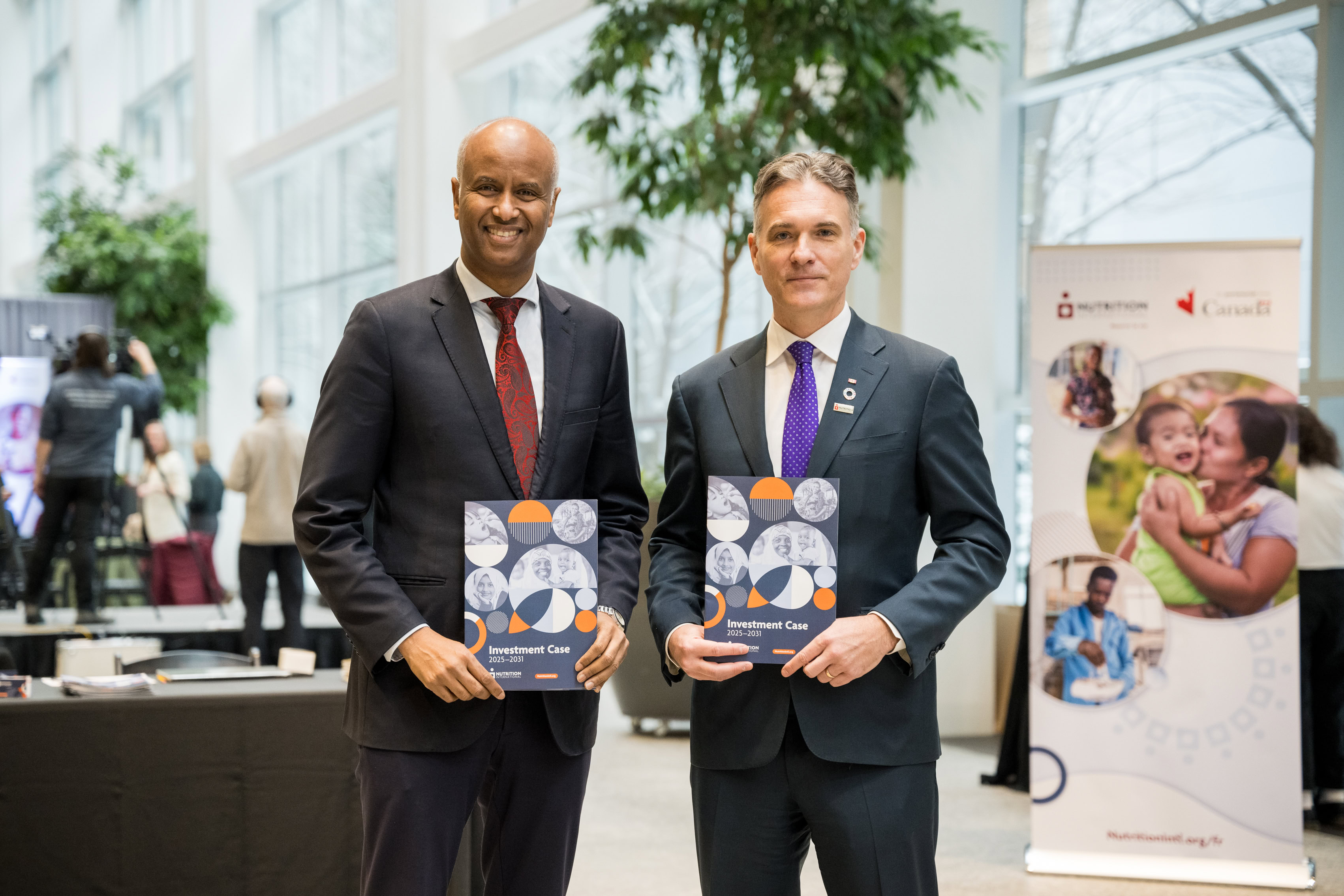Stories
10 stories that shaped our work in global nutrition this year
December 19, 2025
WP_Term Object
(
[term_id] => 48
[name] => News
[slug] => all-news
[term_group] => 0
[term_taxonomy_id] => 48
[taxonomy] => news-category
[description] => Stay up to date on our announcements, newest projects and partnerships, and news about how we’re making a difference in the lives of people around the world.
[parent] => 0
[count] => 279
[filter] => raw
)
Canada announces historic investment in the global fight against malnutrition
Canada reaffirms its place as a global nutrition leader with its largest-ever single nutrition investment. Driven by results and impact, this funding for Nutrition International will be used to scale up evidence-based nutrition interventions for women, adolescents and children.
Posted on February 6, 2025
Toronto, CANADA – Nutrition International welcomes the Government of Canada’s investment of $360.6M to support high impact nutrition programming over the next six years. This catalytic investment will save lives, improve health and generate both education and economic outcomes in over 60 countries, primarily in Asia and Africa.
“This investment will protect future generations, challenge the status quo and strengthen the foundation for economic development globally.
— Joel Spicer, President and CEO, Nutrition International
“Tackling malnutrition holds the key to building a better, more stable and prosperous world that works for everyone,” said Joel Spicer, President and CEO, Nutrition International. “This investment will protect future generations, challenge the status quo and strengthen the foundation for economic development globally. Canada is leaning in at a critical time – this is what global leadership looks like.”
Canada’s funding is an anchor investment in Nutrition International’s new investment case; a bold plan to improve millions of people’s lives by investing in high-impact, evidence-based interventions with measurable impact. With an average return of $28 for every $1 invested, these nutrition interventions offer some of the highest returns in global development, laying the groundwork for improved education and human capital outcomes while driving down health care costs to countries and individuals.

“We are not only talking about reaching 150 million children with essential nutrition support. We are also talking about good jobs for 140 people here in Canada,” said the Honourable Ahmed Hussen, Minister of International Development. “Now and in the years to come, I know the funding announced today will continue to build a brighter future that benefits all of us.”
“Nutrition International’s Second Investment Case is designed to accelerate progress towards the SDGs and World Health Assembly Global Nutrition Targets.
— David de Ferranti, Nutrition International Board Chair
Malnutrition is a tax on human potential, one that disproportionately impacts those living in vulnerable situations. Good nutrition lays the foundation for a better world — it builds resilience to shocks, reduces inequities and strengthens communities. It fuels educational attainment and women’s empowerment while saving lives, improving health and promoting economic growth.
“Nutrition International’s Second Investment Case is designed to accelerate progress towards the SDGs and World Health Assembly Global Nutrition Targets. The goals are ambitious – but our technical acumen, increasing influence, and role as an expert ally to governments around the world make them achievable.” said David de Ferranti, Nutrition International Board Chair. “Canada’s support is a validation of Nutrition International’s track-record, expertise, and growing capability – and we are grateful for Canada’s constancy in nutrition.”
This funding announcement reaffirms Canada’s longstanding commitment to reducing the burden of malnutrition and underscores its leadership in advancing the Sustainable Development Goals (SDGs). Through its investment case, Nutrition International is seeking to raise $1 billion for nutrition by 2031 – and in doing so generate significant, lasting social and economic benefits.
Fully funded, Nutrition International’s Investment Case 2025-2031 will have the following impacts:
Health impacts:
Human capital:
Economic benefits: